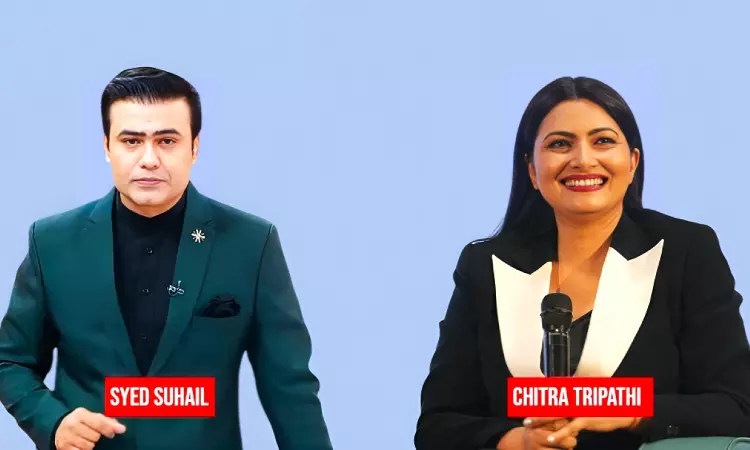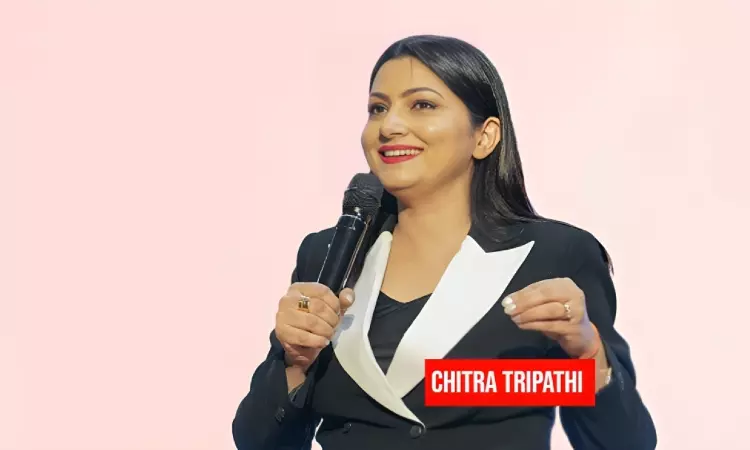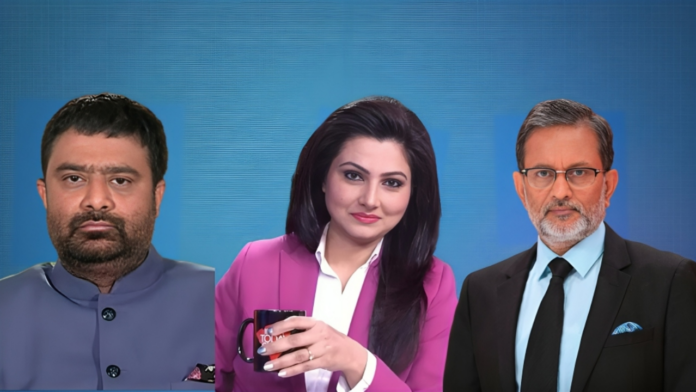A Gurugram court has issued an arrest warrant against prominent TV journalist Chitra Tripathi in connection with a 2013 POCSO (Protection of Children from Sexual Offences) case. The court also rejected Tripathi’s anticipatory bail plea, intensifying the legal troubles for the media personality.
Allegations Involving Morphed Videos And A High-Profile Sexual Assault Case
The charges against Tripathi and seven other journalists, including well-known names such as Deepak Chaurasia and Syed Suhail, stem from allegations of airing doctored and explicit videos of a 10-year-old girl and her family. The videos reportedly attempted to link the minor and her family to a sensational sexual assault case involving controversial godman Asaram Bapu.
The incident, which dates back to 2013, sparked outrage at the time, with several accusing the media of overstepping ethical boundaries. The videos in question were aired during prime-time slots, causing significant distress to the victim’s family and raising questions about the responsibility of media houses in handling sensitive cases.

Chitra Tripathi And Co-Accused Face Serious Charges
The court’s decision to issue an arrest warrant against Tripathi and others comes after years of legal proceedings. The accused journalists are being charged under multiple sections of the POCSO Act for allegedly disseminating content that could harm the dignity and privacy of a minor.
The accusations include the use of morphed visuals that were presented as evidence during news segments. Legal experts suggest that the case highlights the fine line between investigative journalism and the violation of privacy rights, particularly when minors are involved.
Anticipatory Bail Rejected, Legal Troubles Mount
Tripathi’s request for anticipatory bail was denied by the court, signaling the judiciary’s firm stance on the issue. The rejection of bail underscores the gravity of the charges and the potential consequences for those involved.
Meanwhile, the legal team representing Tripathi argued that the journalist was merely following editorial directives and had no malicious intent. They claimed that the footage aired was procured from third-party sources and that Tripathi was not directly responsible for its authenticity.

Media Ethics Under Scrutiny Amid Growing Controversy
The case has reignited debates about media ethics and accountability, particularly in cases involving minors and sensitive criminal investigations. Critics argue that the sensationalization of high-profile cases often leads to lapses in judgment, with some journalists prioritizing TRPs over ethical reporting.
This controversy is not the first time Indian journalists have come under fire for alleged misconduct. However, the involvement of high-profile media figures like Tripathi and Chaurasia has added a new dimension to the discourse, raising questions about the role of editorial oversight in preventing such incidents.
Police Investigation Intensifies To Ensure Justice
Law enforcement agencies have intensified their efforts to gather evidence and bring the accused to justice. Forensic experts are reportedly analyzing the contentious video footage to establish whether it was indeed doctored and to identify the individuals responsible for the alleged morphing.
The victim’s family has welcomed the court’s decision, expressing hope that the case will set a precedent for greater accountability in media practices. “We have suffered immensely because of the actions of these journalists. It’s time they answer for what they have done,” a family member was quoted as saying.
Asaram Bapu’s Case Adds A Layer Of Complexity
The backdrop of this controversy is the infamous sexual assault case involving self-styled godman Asaram Bapu. The case attracted nationwide attention, with multiple allegations of sexual misconduct against the spiritual leader. The media’s coverage of the case was extensive, but the alleged actions of Tripathi and her colleagues have cast a shadow over journalistic practices during that period.
Asaram Bapu is currently serving a life sentence for his crimes, but the controversy surrounding the media’s handling of the case continues to make headlines.
Chitra Tripathi’s Career Under A Cloud
Once regarded as a trailblazer in Indian journalism, Chitra Tripathi now faces a challenging chapter in her career. Known for her incisive reporting and strong on-screen presence, Tripathi’s reputation has taken a hit as a result of the ongoing legal proceedings.
Industry insiders speculate that the case could have long-term implications for Tripathi’s professional future. Several media organizations have reportedly distanced themselves from the journalist, fearing reputational damage.
A Wake-Up Call For The Media Industry?
The allegations against Tripathi and others serve as a wake-up call for the media industry to introspect and reevaluate its practices. With the rise of digital media and the 24/7 news cycle, the pressure to deliver breaking news often comes at the cost of accuracy and ethical reporting.
Journalistic bodies have called for stricter guidelines to ensure that incidents like this do not recur. The Press Council of India has yet to issue a formal statement on the matter, but sources indicate that a review of existing regulations is on the cards.

